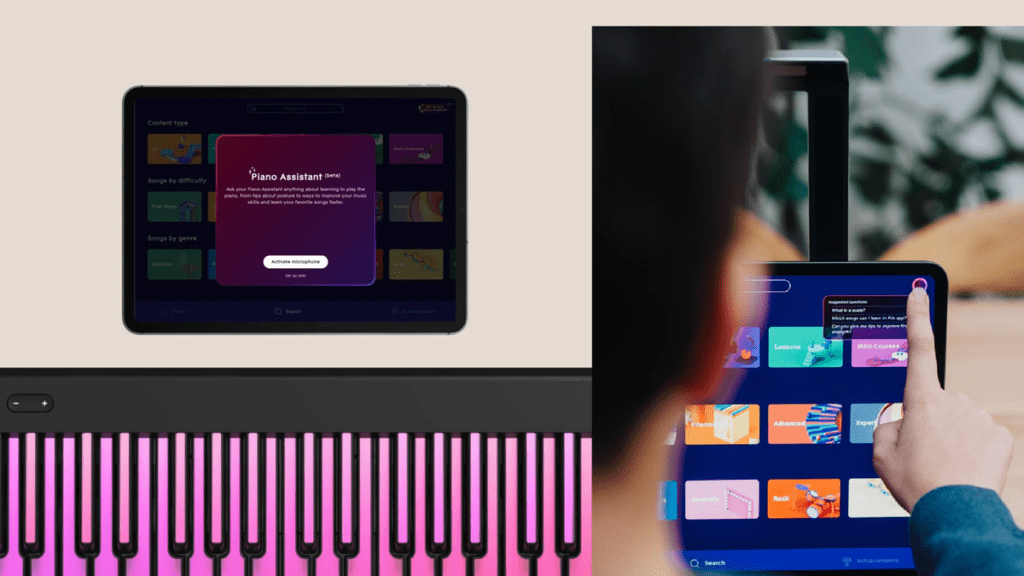- Roli has a new Piano AI Assistant for its latest instruments.
- Piano AI Assistant offers personalized help and lessons in real time.
- AI is there to make learning and creating music more intuitive.
Piano teachers of both the strict and whimsical variety are a staple of film and television, but music technology company Roli now offers a piano teacher built right into the instrument. The new Roli Piano has personal AI guidance under the 49-key keyboard and $800.
Roli’s Piano AI Assistant does exactly what it sounds like: It makes learning music more straightforward and fun than practicing alone. It can guide players through scales, explain ways to vary a tune, and even explain some music history in the context of specific compositions. It’s like having a music teacher who never gets tired and has an encyclopedic knowledge of the subject.
“In a few years, it will seem obsolete that a piano or keyboard can’t help you, can’t see your hands and react to them in many ways, and can’t have a conversation to help you,” Roli CEO Roland Lamb explained in a statement “Today we’re unveiling the new Roli Piano System that will help usher in this major shift.”
Look at
Music dreams
That piano system is more than just the AI tutor and includes several functions built into the keyboard. The Brightkey feature identifies the song you’re playing and then lights up the keys to guide you through notes and chords. Roli’s instruments also come with the Roli Airwave tool, which uses computer vision and AI to track hand movements across the keyboard, allowing the AI assistant to make specific corrections as you learn to play a new piece. Plus, the keys are sensitive enough to how they are played that they can mimic mechanical pianos in pitch bending and other complex musical shifts.
These AI tools can serve to make music more accessible to a lot of people who want to learn piano. Instead of giving up after their first clumsy rendition of “Twinkle, Twinkle, Little Star,” the AI assistant could encourage you to keep going. And for experienced players, the expressive features and personalized prompts can spark new creative ideas.
The $800 price tag is steep, but as these kinds of tools become more common, it’s not hard to imagine a future where music education leverages AI to give more people a chance to learn.
AI might not be music to every piano player’s ears, but it might at least be worth humming along to.



